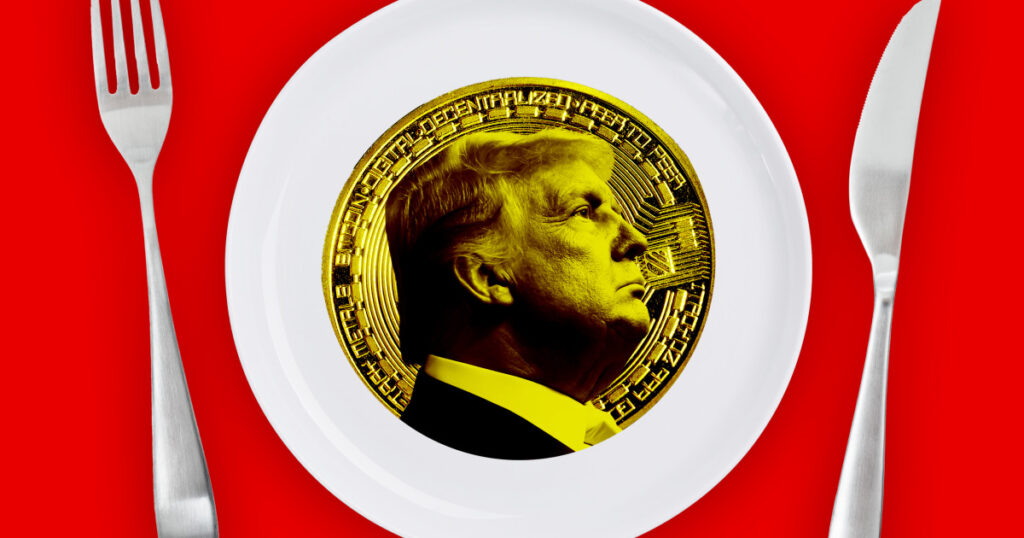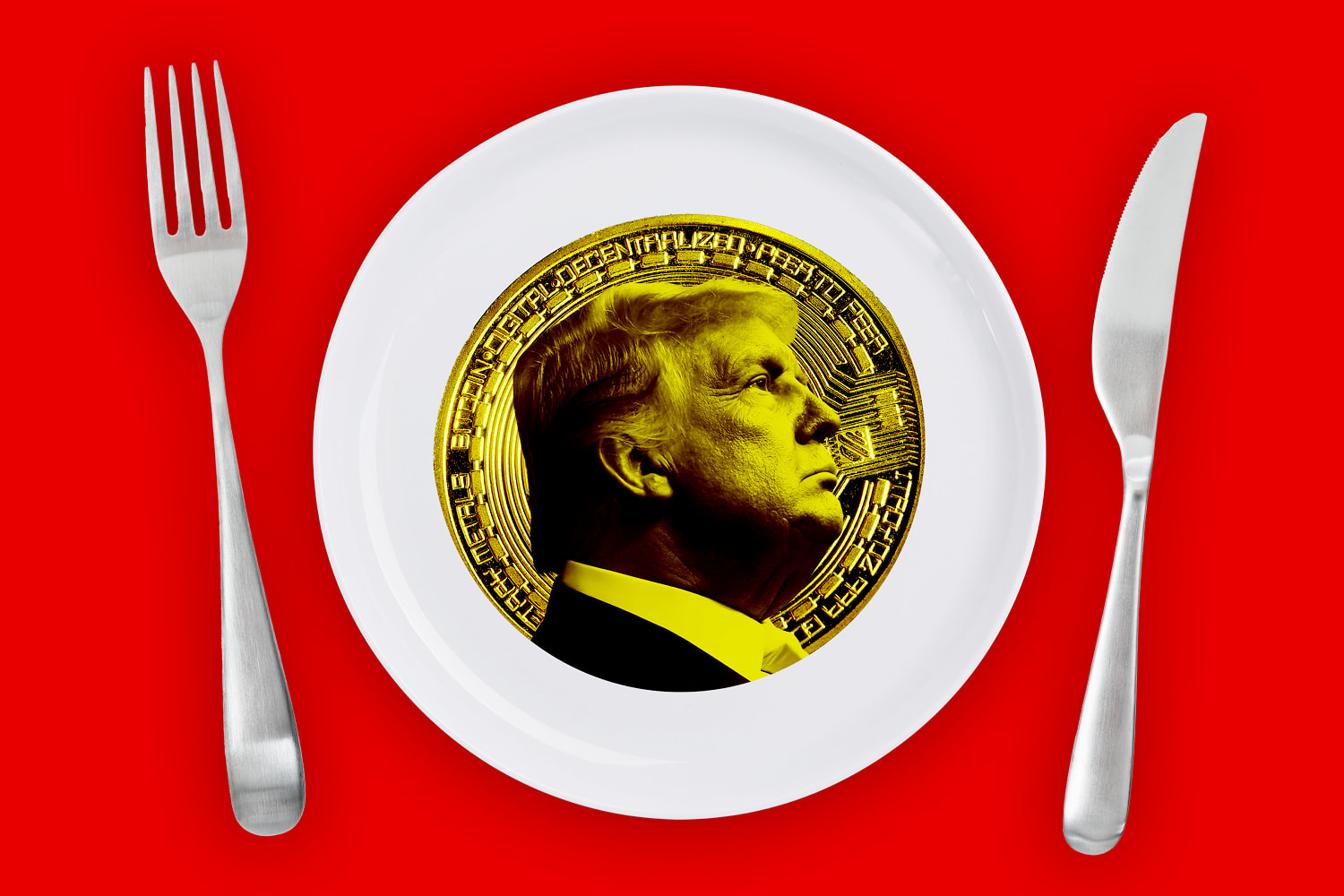

More than 200 wealthy, mostly anonymous crypto buyers are coming to Washington on Thursday to have dinner with President Donald Trump. The price of admission: $55,000 to $37.7 million.
That’s how much the 220 winners of a contest to meet Trump spent on his volatile cryptocurrency token, $TRUMP, according to an analysis by the blockchain analytics company Nansen.
The top $TRUMP coin holders at a specific time — determined by the dinner’s organizers — secured a seat.
In total, the winners spent $394 million on Trump’s official cryptocurrency, Nansen found, though some have sold portions of or all of their holdings since the contest ended. The amount varied significantly by spender, with the top seven winners each spending more than $10 million and the bottom 24 each spending less than $100,000. A third of the winners — 67 of them — spent more than a million dollars, the research shows. The average winner spent $1,788,994.42.
Like many meme coins, $TRUMP’s value fluctuates wildly, according to CoinMarketCap, which tracks cryptocurrency prices. Nansen tracked how much each of the contest winners spent on their $TRUMP at the time they purchased it.
The top 220 contest winners were invited to the black-tie optional dinner at the Trump National Golf Club Washington, D.C. While the website for the contest claims that Trump “is appearing at the dinner as a guest and not soliciting any funds for it,” it also says that 80% of the $TRUMP coin project is owned by two Trump-affiliated companies, CIC Digital and Fight Fight Fight LLC.
The personal cryptocurrency and associated contest, which ended last Monday, adds to the litany of ways Trump has appeared to use the office of the presidency to profit personally. His business interests are in a trust controlled by his son Donald Trump Jr., and he has intertwined many of his family businesses with his activities as president, including holding events, like the crypto dinner, at his social clubs, and issuing exclusive political statements on his social media app Truth Social.
Trump’s cryptocurrency also makes money for the Trump-tied groups that created it simply by being traded. For every $TRUMP coin that’s traded, a transaction fee is taken. Chainalysis, another cryptocurrency research firm, has estimated that the $TRUMP coin made nearly $900,000 in transaction fees within the first two days of the contest being announced.
While most federal employees would be legally barred from using their office for financial gain, the president is largely exempt, Dan Weiner, the director of the Elections and Government Program at the Brennan Center for Justice, told NBC News.
“The president is not subject to the broad prohibition on conflicts of interest that affects almost everyone else who works for the federal government,” Weiner said.
“In general this is pretty wild even by the standards of the first Trump administration, when you had a variety of people doing business at the president’s hotels. This goes far beyond that, but that doesn’t necessarily make it illegal for him,” he said.
White House spokesperson Anna Kelly said in a statement: “The President is working to secure GOOD deals for the American people, not for himself. President Trump only acts in the best interests of the American public — which is why they overwhelmingly re-elected him to this office, despite years of lies and false accusations against him and his businesses from the fake news media.”
Even the winners at the bottom of the leaderboard spent far more than the legal limit for an American to donate directly to a political candidate, $3,500.
The top spender revealed himself Tuesday as Justin Sun, a Chinese-born crypto entrepreneur who told Forbes in March he had become a citizen of the tiny island nation of St. Kitts and Nevis. Sun was sued by the Securities and Exchange Commission, but that case has been paused under the Trump administration.
The identities of most of the other contest winners are largely private, known only by their pseudonymous nicknames and cryptocurrency wallet addresses. However, a majority of the attendees appear to be foreign nationals, according to Molly White, an independent crypto researcher who has written about the contest.
White examined each winning wallet’s transactions as they crossed through different crypto exchanges, and noted when the holder appeared to use an exchange that does not legally allow U.S. citizens. Of the 220 wallets tied to contest winners, 158 of them, or 72%, appear foreign, White told NBC News.
A New York Times investigation reported that the leaderboard included people representing crypto businesses in Singapore and Australia.
The prevalence of non-U.S. citizens among the contest winners is notable, as it is generally illegal for people who are not U.S. citizens to donate to American political candidates, Weiner said.
“It’s an incredible contrast. We have very strict laws that prohibit foreign nationals from making campaign donations. So the great irony here is that many of the people buying this currency would not be eligible to donate $100 to the president’s campaign,” he said.
“We have a variety of laws that are designed to prevent undue foreign influence over our politics, something actually both parties agree is a legitimate thing to try to avoid. And yet you have this happening,” he said.
 Latest World Breaking News Online News Portal
Latest World Breaking News Online News Portal






